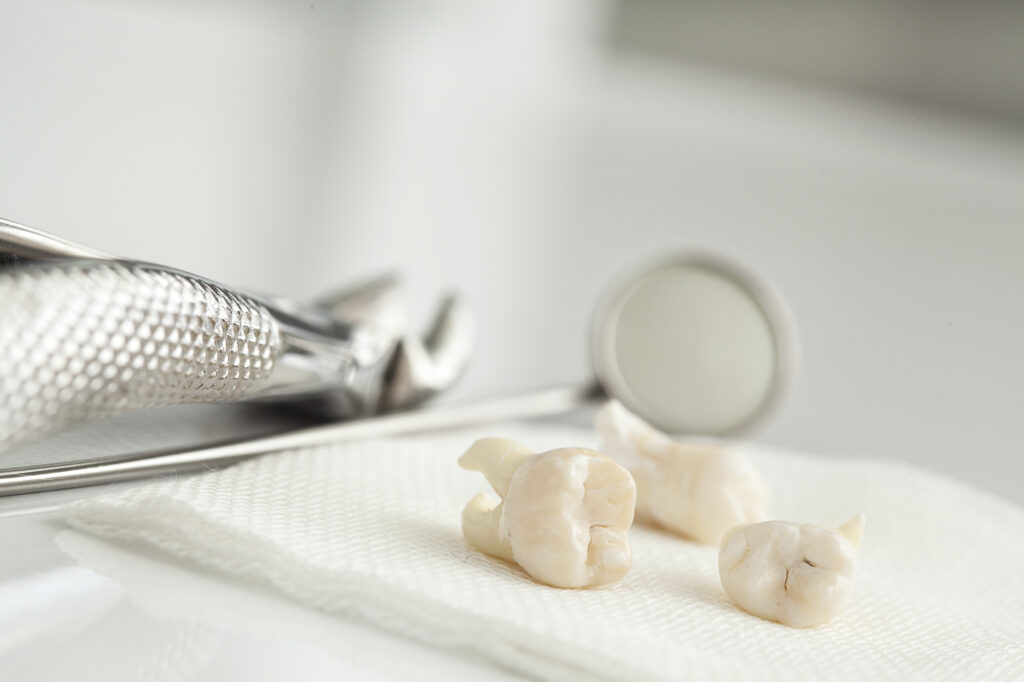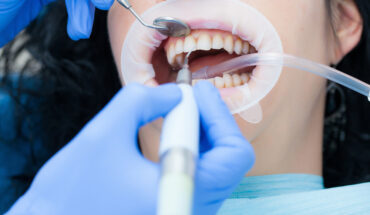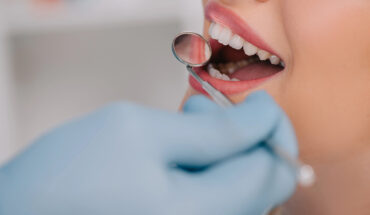
We all know the importance of brushing our teeth and taking care of our dental health. But did you know that taking care of your teeth may also help you take better care of your mental health? It’s true! Research has shown that there is a connection between oral health and overall wellbeing, and it’s called “Molar Madness.” In this article, we will explore how your teeth can keep your mind healthy and what you can do to keep them in good condition. So get ready to brush up on some tooth knowledge – it just might be the key to unlocking a healthier mind!
The Link Between Teeth and Overall Health
It’s no secret that oral health is essential to overall health. What you may not know, however, is that the link between teeth and overall health goes much deeper than simply preventing cavities. In fact, studies have shown that poor oral health can lead to a host of other health problems, including heart disease, stroke, and even dementia.
One of the ways in which poor oral health can impact your overall health is by causing inflammation. When your gums are inflamed, it sets off a chain reaction throughout your body that can lead to a number of serious health problems. For example, inflamed gums can cause damage to the lining of your blood vessels, which can then lead to heart disease or stroke.
In addition to causing inflammation, poor oral health can also lead to the development of bacteria in your mouth. These bacteria can then enter your bloodstream and travel to other parts of your body, where they can wreak havoc. For example, bacteria from your mouth can travel to your brain and contribute to the development of dementia.
So, what does this all mean? Simply put, taking care of your teeth is important for more than just keeping your smile looking good – it’s essential for maintaining your overall health. Be sure to brush twice a day, floss daily, and see your dentist regularly for checkups and cleanings. By taking these simple steps, you’ll be on your way to maintaining good oral – and overall – health!
How to Keep Your Teeth Healthy
Your teeth are important not just for chewing and smiling, but also for your overall health. Poor oral hygiene can lead to a number of problems, including tooth decay, gum disease, and even heart disease. Fortunately, there are a few simple things you can do to keep your teeth healthy.
Here are some tips for keeping your teeth healthy:
1. Brush twice a day with fluoride toothpaste.
2. Floss daily to remove plaque and food debris from between your teeth.
3. Visit your dentist regularly for professional cleanings and checkups.
4. Eat a balanced diet and limit sugary snacks and drinks.
5. Quit smoking to reduce your risk of gum disease and other dental problems.
The Importance of Good Oral Hygiene
Your oral health is important for more than just a pretty smile – it’s essential for your overall health and well-being. Good oral hygiene habits can help prevent gum disease, tooth decay, and other problems that can lead to pain, infection, and even tooth loss.
But keeping your mouth healthy isn’t just about brushing and flossing – it also includes eating a balanced diet, avoiding tobacco products, and visiting your dentist regularly for professional cleanings and checkups.
Here are some tips for good oral hygiene:
· Brush your teeth at least twice a day with a fluoride toothpaste.
· Floss daily to remove plaque from between your teeth and under your gumline.
· Eat a balanced diet and avoid sugary snacks and drinks.
· Don’t smoke or use other tobacco products.
· See your dentist regularly for professional cleanings and checkups.
The Consequences of Poor Oral Hygiene
Poor oral hygiene can lead to a number of different health problems. The most common consequence of poor oral hygiene is tooth decay. Tooth decay is the result of bacteria in your mouth breaking down the enamel on your teeth. This can lead to cavities, which are holes in your teeth that can become infected. left untreated, cavities can cause pain, tooth loss, and even death.
Another consequence of poor oral hygiene is gum disease. Gum disease is an infection of the gums that can lead to tooth loss and other serious health problems. Gum disease is caused by plaque, a sticky film of bacteria that forms on your teeth. If plaque isn’t removed, it can harden into tartar, which irritates the gums and leads to gum disease.
Poor oral hygiene can also cause bad breath. Bad breath is caused by the same bacteria that cause cavities and gum disease. When these bacteria break down food in your mouth, they release an unpleasant odor. bad breath can be embarrassing and make it difficult to socially interact with others.
Finally, poor oral hygiene can lead to an increased risk for developing other serious health conditions such as heart disease and stroke. This is because the same bacteria that cause problems in your mouth can also travel through your bloodstream and contribute to the development of these conditions.
Connection Between Extracted Teeth and Memory Loss
There is a strong connection between extracted teeth and memory loss. When teeth are extracted, the roots are also removed. These roots contain important nerves and blood vessels that help to keep the brain healthy and functioning properly. Without these roots, the brain cannot receive the necessary nutrients and oxygen that it needs to function properly, leading to memory loss and other cognitive problems.
Why Do We Have Wisdom Teeth
It’s a rite of passage for many: the removal of wisdom teeth. These third molars can cause all sorts of problems, from pain and Crowding to infection. But why do we have them in the first place?
The simple answer is that we don’t really know. Wisdom teeth are vestigial structures, which means they’re leftovers from our evolutionary past. Our ancestors had larger jaws and teeth, and their diet was mostly rough, uncooked food that required a lot of chewing. Over time, our jaws have shrunk and our diet has changed, but we still have wisdom teeth.
These days, wisdom teeth often cause more problems than they’re worth. They can come in at all sorts of angles and crowd existing teeth, or they may not come in at all. impacted wisdom teeth can cause pain, infection, and damage to other teeth. That’s why most people opt to have them removed. The process is called wisdom teeth removal is the extraction of your third molars.
While there’s no clear reason why we have wisdom teeth, there are some theories about their function (or lack thereof). One theory is that they were once used to help grind tough food. Another is that they served as replacement teeth in case other ones were lost during hunting or fighting.
These days, however, wisdom teeth are more trouble than they’re worth. If you have them, you may want to consider having them removed – it could save you.
How Teeth Change With Age
As we age, our bodies go through changes that can be difficult to adjust to. Our skin becomes thinner and more delicate, our hair turns gray and begins to fall out, and our joints ache with arthritis. These changes are a natural part of the aging process, but they can also be a source of frustration.
Similarly, our teeth go through changes as we age. The enamel that protects our teeth begins to wear down, making them more susceptible to decay. The gums recede and the roots of the teeth become exposed. We may also experience tooth loss as we get older.
While these changes are unavoidable, there are things we can do to minimize their impact on our lives. For example, we can take steps to protect our teeth from further damage. We can also make sure to see our dentist regularly so that any problems can be caught early and treated accordingly.
By taking care of our teeth, we can help ensure that they remain healthy and functional well into old age. And by keeping our minds healthy and active, we can help offset some of the cognitive decline that is often associated with aging. So take care of your teeth and your brain will thank you!
How to Improve Your Oral Hygiene
When it comes to your oral hygiene, there are a few things you can do to help improve it. First, make sure you brush your teeth at least twice a day and floss at least once a day. Doing this will help remove any plaque or bacteria that may be building up on your teeth. You should also consider using an antibacterial mouthwash to help kill any harmful bacteria in your mouth. In addition, try to avoid sugary drinks and foods as they can cause cavities. If you smoke, quitting is also important for maintaining good oral health.
Conclusion
It’s clear that taking care of your teeth is essential for overall health and wellbeing. Not only does it help prevent cavities, but it can also reduce the risk of heart disease, stroke, dementia and other serious conditions. Keeping your teeth clean helps promote healthy brain function by preventing harmful bacteria from entering your bloodstream. With regular brushing and flossing, you can keep your smile looking great and protect yourself against a host of potential illnesses. So don’t wait any longer; take control of your oral health today!




